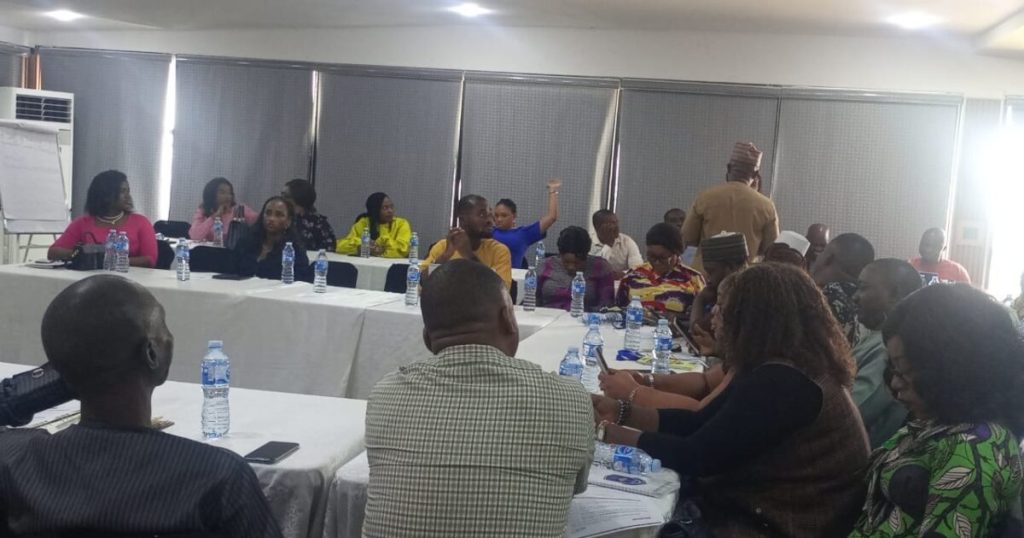The Partnership Against Violent Extremism Network (PAVE) has emphasized the critical role of Nigerian media in countering radicalization and violent extremism. They argue that sensationalist reporting can exacerbate conflict and that responsible journalism is essential for national peacebuilding. During the launch of the Media in Preventing and Countering Violent Extremism Network (MAVE), PAVE highlighted the need for a “whole-of-society” approach, with media at its core, to effectively address Nigeria’s long-standing struggle with extremism. They stressed that narratives shape behavior and that responsible, conflict-sensitive reporting can contribute significantly to prevention, de-escalation, and reintegration efforts. The event, held in Abuja, combined capacity building, roundtable dialogues, and training on conflict-sensitive journalism, emphasizing the importance of media engagement in fostering peace and security.
PAVE, in collaboration with the Office of the National Security Adviser (ONSA) and ActionAid Nigeria, with funding from the Global Community Engagement and Resilience Fund (GCERF), organized the two-day program to equip journalists with the necessary skills and knowledge to report responsibly on issues related to violent extremism. PAVE Chairman, Jaye Gaskia, emphasized that a multi-sectoral approach involving government, civil society, communities, and the private sector is crucial, as no single entity can tackle the complex issue of extremism alone. Gaskia highlighted PAVE’s three-pronged strategy: co-creating state and local action plans on preventing and countering violent extremism (PCVE), operationalizing the PCVE Knowledge, Innovation and Resource Hub (KIRH), and institutionalizing media engagement through MAVE. These initiatives reflect a comprehensive and collaborative approach to building resilience against violent extremism.
The historical context of PAVE’s establishment reveals a long-term commitment to addressing the root causes of extremism. Formed in 2014 after consultations convened by ONSA with civil society groups and international partners, including the United Nations Counter-Terrorism Implementation Task Force and the International Centre for Counter-Terrorism, PAVE has expanded its reach to 22 states across Nigeria. Their vision of a Nigeria free from violent extremism underscores their dedication to fostering peace and security. GCERF, a key supporter of community-level interventions in Nigeria since 2016, emphasized the need for sustainable solutions and local ownership. Their experience in the North-Central and North-West zones has highlighted the effectiveness of grassroots approaches.
GCERF National Coordinator, Yetunde Adegoke, stressed that donor support should act as a catalyst for long-term, sustainable change. She advocated for moving beyond short-term, project-based approaches to more enduring solutions driven by local communities. The PCVE Knowledge, Innovation and Resource Hub is seen as integral to this long-term strategy, ensuring the continuity of PCVE efforts beyond the lifespan of donor funding. ActionAid Nigeria underscored the media’s responsibility to avoid stigmatizing portrayals of regions or people affected by conflict. Aliyu Adamu, representing ActionAid Nigeria Country Director, emphasized the power of media narratives to shape perceptions, often inaccurately, and the need for balanced reporting that highlights solutions and peacebuilding initiatives alongside reports of violence. This focus on positive narratives and community resilience is key to fostering social cohesion and countering harmful stereotypes.
The two-day MAVE launch event combined awareness-raising with practical training. The first day focused on the official launch, goodwill messages, a press conference, and a dialogue on Nigeria’s Policy Framework and National Action Plan (PF-NAP) on PCVE. The second day was dedicated to training sessions on conflict-sensitive reporting, a roundtable with media stakeholders, and strategic planning for future actions. This structured approach ensured that participants not only understood the importance of responsible reporting but also acquired practical skills and developed collaborative networks to support their work.
The establishment of MAVE represents a significant step towards integrating media responsibility into Nigeria’s security policy. By equipping journalists with the necessary training, resources, and networks, MAVE aims to ensure that media reporting contributes to peace, cohesion, and understanding. The initiative recognizes the media’s power to influence public perception and its potential to either fuel conflict or become a catalyst for peace. By fostering collaboration between media professionals, security agencies, and civil society organizations, MAVE seeks to create a media landscape that actively supports peacebuilding efforts and counters the narratives of violent extremism. This comprehensive approach, combining capacity building, policy engagement, and community-level interventions, positions Nigeria to make significant strides in its ongoing fight against violent extremism.


